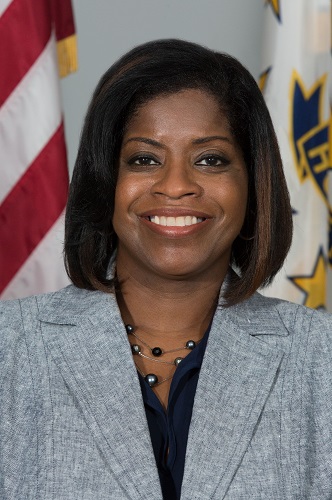
PROVIDENCE – Undefined leadership, a lack of diversity and limited activity to educate and support communities of color are among the findings of a state review released Monday on two divisions within the R.I. Department of Behavioral Healthcare, Developmental Disabilities and Hospitals.
The eight-page report, which included recommendations on how to address the findings, was made public by R.I. Executive Office of Health and Human Services Secretary Womazetta Jones.
The department consists of the Division of Behavioral Healthcare, the Division of Developmental Disabilities, and the Eleanor Slater Hospital. Jones released an initial report on June 30 focused on the hospital, in which she said patients are receiving excellent care and staff members are dedicated to their work but noted leadership and staff issues and that the hospital needs physical repairs and technological upgrades.
Jones’ most recent report focused on the other two divisions of BHDDH. The behavioral health division is responsible for planning, coordinating and administering a comprehensive statewide system of mental health and substance abuse prevention, intervention, treatment activities and recovery supports.
Jones found that while division staff members are dedicated to ensuring the health of patients, leadership assignment needs to be defined. Undefined leadership has resulted in inconsistent observation of hierarchy and management authority, as well as undefined or unclear processes for key responsibilities and determining accountability for key tasks.
In the next six months, Jones recommends bringing in a strong and focused individual to lead the division and create “a solid and understood chain of command.” She also says the department should return to a divisional-based structural design to ensure a centralized and coordinated approach.
Over the next 12 months, Jones recommended the division engage in a public-private collaborative process to develop a comprehensive continuum of care for both mental health and substance use; expand detox and residential services; and review all mental health, substance use and addiction grants, allocations and contracts to better align dollars with needs and service gaps.
While Jones also found staff are committed and dedicated to patients in the developmental disabilities division, she said in both BHDDH divisions there exists an insular organizational culture, lack of diversity and limited activity to educate and support communities of color.
In addition to improving communication and strengthening the relationship between staff, labor and leadership, Jones recommended developing a plan to recruit, retain and promote diverse staffing and leadership, while also implementing a process for ongoing education, support and engagement with communities of color, Indigenous communities and marginalized communities.
Within the developmental disabilities division, Jones noted a commitment to transformational change and compliance and said that should continue over the next six months, as well as reaffirming with the leadership team their roles, duties, responsibilities and authority, and ensuring the team continues to engage service staff, labor, stakeholders and all communities.
Jones reiterated that the key element for success in the behavioral health division as it moves forward is to engage with staff, community and stakeholders. She recommends doing this through a bi-annual survey of division staff, holding periodic listening sessions with staff and directors, and conducting monthly listening sessions with the community, with themes and action plans from each meeting being shared on the BHDDH website.
BHDDH has seen its share of recent resignations. Jennifer White, who served as the department’s chief financial officer and interim CEO of Eleanor Slater Hospital, resigned on June 10. She had raised issues about the state’s billing practices.
Dr. Brian Daly, chief medical officer at Eleanor Slater Hospital and BHDDH, submitted his resignation on July 1. He had served in the role since 2018.
As of May 26, BHDDH has been under the leadership of former Landmark Medical Center CEO and President Richard Charest, who is serving as the department’s director.












